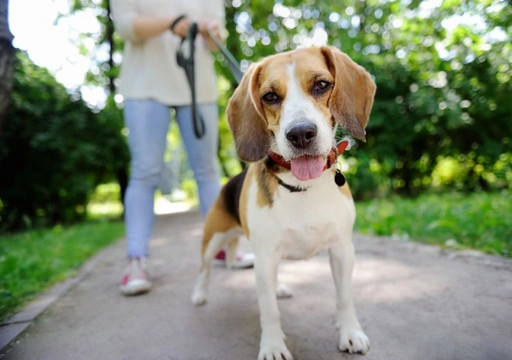
When should you avoid socialising your dog?
Socialisation is vitally important for all dogs, which means that as a dog owner you will generally need to ensure that your dog has plenty of opportunities to meet and play with others of their kind on a regular basis – ideally daily.
This is because dogs are highly social animals that naturally seek to form social groups and packs, and that actively enjoy the company, entertainment and reassurance that comes from being with others. Additionally, socialisation helps to teach your dog the skills that they need to be able to play and spend time with other dogs properly – an adult dog that is not used to other dogs or that has never really had the chance to learn and play with others will require quite a lot of work to get them up to a level at which they can be trusted to get on with others.
All of this means that scheduling in time for play and socialisation with other dogs is an integral part of being a dog owner – but there are some times and situations in which you should actively seek to keep your dog away from others, and avoid socialising them for their own protection or that of other dogs.
In this article, we will look at a range of situations and scenarios in which you should avoid socialising your dog, or bringing them into contact with other dogs that don’t live with them, for a variety of reasons. Read on to learn more.
If your bitch is in heat
First of all, if you own an unneutered bitch, you will need to keep her well away from unneutered male dogs whenever she goes through a heat cycle – and this can be harder than it might first appear! Unneutered dogs will go to great lengths to get to a bitch in heat, which means that when you walk your bitch during a heat cycle, she should be kept on a lead at all times when out in public, and not taken to play with strange dogs or to run off the lead outside of private enclosed areas that other dogs cannot access.
If you have a dam with a litter
A dam that is raising a young litter will need to dedicate all of her time and energy to the puppies, and so her normal routine of walking and socialisation will need to pause until the pups have been sold or rehomed, or have become old enough to meet other dogs themselves.
Young puppies are very vulnerable to illness and contagious health conditions, which are also generally a lot more serious in pups than adult dogs – and if your dam goes out walking or socialising with other dogs during this time, she might inadvertently carry an infection back to her litter.
If your dog has a contagious illness
If your own dog has an illness or problem that is or might be contagious – even if your dog doesn’t seem to be particularly unwell themselves – you should isolate them from coming into contact with other dogs that don’t live with them, to avoid passing the condition on to others.
If your dog has an injury that needs to be protected
Every dog gets the odd knock, bump, or minor injury from time to time, and these can easily occur as part of socialising with others. This of course means that if your dog already has an injury, or if they are perhaps recovering from surgery or a veterinary treatment, you might need to curb their social activities for a while to give them the best possible chances of healing.
Vigorous exercise or exertion can naturally exacerbate an existing injury or cause damage to a wound or area of the body that is healing, and playing with other dogs is something that you must actively prevent until your vet gives your dog the go-ahead to get back into the thick of it when they are all healed.
Before your pup has had their vaccinations
Puppies need to receive both of their two-stage initial vaccinations and go through the waiting period necessary to allow the vaccinations to take full effect before they go out in public and meet other dogs for the first time, and so your pup’s socialisation with other dogs should not begin before this point.
It is not only direct contact with other dogs that can cause a pup to catch a contagious illness either – some serious health conditions including parvovirus can remain viable in the environment for a long time after an affected dog has passed through, and so it is important to play it safe and not take risks with young, vulnerable puppies.
If your dog is unpredictable with others
Finally, if your dog is very reactive, unpredictable or unreliable in the company of other dogs, it is not appropriate to take them to socialise with strange dogs or in public places.
Such dogs will still need to be socialised and trained to help them to develop the appropriate social skills, but this must be handled and managed carefully, with the help of other well-informed dog owners and their dogs – you can’t just take a potentially reactive dog along to a dog park and hope for the best.



